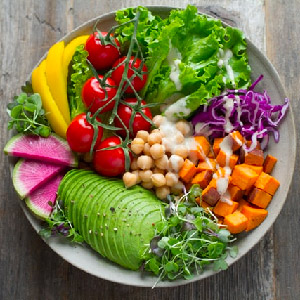Some consider fat to be the enemy and that consuming it will result in an increase in body fat or a ruined diet. But, this isn’t always the case. It’s all about the type of fat you eat, and when you eat it that makes all the difference. In fact, some “healthy” fats are incredibly beneficial for health. So, let’s dive in, what are the benefits of eating healthy fats?
Eating healthy fats such as vegetable oils, nuts, seeds and oily fish have a wide range of benefits. However, the key benefits include boosting cholesterol and lowering bad cholesterol which, in turn, lowers the risk of diseases such as heart disease and stroke. Additionally, consuming healthy fats can help your body to better absorb vitamins such as A, D, E and K.
Read on to learn more about healthy fats and how to use fat manipulation.
What is Fat Manipulation?
Fat manipulation is the process of switching up the type of fats that you eat and how often you eat them, with the aim of managing body composition or improving performance. Contrary to popular belief, fat isn’t inherently bad, but certain types of fat are better for you than others.
Who Could Benefit From Fat Manipulation?
We find that fat manipulation is particularly beneficial for women, or others that might have a history of yo-yo dieting, undereating or generally having a bad relationship with food. Such habits, over time, negatively impact hormones and metabolism.
Fat manipulation and the consumption of good dietary fats will not only help to improve the hormone profile but also provide enough calories for the body to begin to restore, repair and utilise fat metabolism.
What are Healthy Fats?
Not all fats are bad for us. In fact, some are known to lower the risk of cholesterol and other diseases, among other benefits. These fats are unsaturated fats – monounsaturated and polyunsaturated. Monounsaturated fats are fat molecules that have one unsaturated carbon bond in the molecule. Polyunsaturated fats have more than one unsaturated carbon bond.
Examples of “healthy”, unsaturated fats include:
- Vegetable oils (e.g. olive oil)
- Nuts such as almonds, hazelnuts and pecans
- Seeds such as pumpkin and sesame seeds
- Oily fish such as salmon and mackerel
- Avocado
- Eggs
- Full fat Greek yoghurt
What are the Benefits of Healthy Fats?
Unfortunately, most people don’t eat enough unsaturated fats, yet eat too many saturated fats. Research suggests that 8-10% of daily calories should come from unsaturated fats and that increasing the consumption of them (up to around 15% of daily calories) may lower the risk of heart disease.
Other benefits of healthy fats centre around boosting cholesterol and lowering bad cholesterol in your blood. Your liver converts unsaturated fatty acids into ketone bodies instead of into low-density lipoprotein triglycerides. As with saturated fats. In turn, this lowers your risk of heart disease and stroke.
Additionally, eating healthy fats can help your body to better absorb vitamins such as A, D, E and K. They also work to maintain your body’s cells, benefit brain health and even fight inflammation.
Example Meal Plan for Fat Manipulation
As part of your journey with Human Health Hub, we set a baseline nutritional plan based on your current health and your goals. For those of you that may benefit from fat manipulation, we recommend the following meal plan:
- Days 1-4: Eat 1 cup each of protein, complex carbohydrates and vegetables per meal, alongside 1 tbsp of unsaturated oil per meal.
- Day 5: Eat 1 cup each of protein, complex carbohydrates and vegetables per meal, alongside 3 tbsp of unsaturated oil per meal.
Unsaturated oils include:
- Olive oil
- Sunflower oil
- Rapeseed oil
- Peanut oil
- Walnut oil
- Corn oil
Learn More About Nutritional Strategies With Human Health Hub
At Human Health Hub, we tailor nutritional strategies in line with your goals. For some, this includes manipulating the consumption of fat in order to maintain body composition, lose fat, or generally improve performance.
Get in touch with us today to learn more about our services at Human Health Hub. We offer a free initial consultation where you can learn more about functional nutrition, sports nutrition, pricing, program structures and more.





